Supplementing Qi
What is Qi Deficiency?
Qi deficiency is a term in Traditional Chinese Medicine (TCM) that refers to a series of pathological changes and symptoms caused by insufficient vital energy (yuan qi). Qi is the most fundamental substance in the human body, formed by the essence (jing) from the kidneys, the energy from the spleen and stomach that processes food, and the clear air (qing qi) inhaled by the lungs.
Qi deficiency generally refers to symptoms such as physical weakness, pale complexion, shortness of breath, fatigue in the limbs, dizziness, sweating upon exertion, and a weak voice. It includes the deficiency of yuan qi, zong qi, and wei qi, as well as a reduction in the functions of Qi in promoting, warming, defending, consolidating, and transforming, leading to decreased or weakened bodily functions and reduced resistance to disease.
Fundamentally, human life activities are movements of the rise and fall of vital energy. Qi deficiency is a common syndrome often caused by congenital insufficiency, malnutrition, aging, prolonged illness, major surgery, and excessive fatigue. Clinically, Qi deficiency can also include lung Qi deficiency, heart Qi deficiency, spleen Qi deficiency, and kidney Qi deficiency.

Herbs for Qi Supplementation: Huang Qi (Astragalus), Ren Shen (Ginseng), Dang Shen (Codonopsis), Tai Zi Shen (Pseudostellaria), Huang Jing (Polygonatum), Xi Yang Shen (American Ginseng), Bai Zhu (White Atractylodes), etc.
Formulas for Qi Supplementation: Bu Zhong Yi Qi Wan (Renovate the Middle and Augment Qi Pill), Shi Quan Da Bu Gao (Ten Complete Great Supplement Paste), Gui Pi Wan (Restore the Spleen Pill), Shen Ling Bai Zhu Wan (Ginseng, Poria, and Atractylodes Pill), etc.
Moxibustion for Qi Supplementation: Zu San Li (ST36), Shen Que (CV8), Guan Yuan (CV4), Pi Shu (BL20), Qi Hai (CV6), Bai Hui (GV20), Fei Shu (BL13), etc.
Acupuncture for Qi Supplementation: Zu San Li (ST36), Bai Hui (GV20), San Yin Jiao (SP6), Qi Hai (CV6), Guan Yuan (CV4), Pi Shu (BL20), Fei Shu (BL13), etc.
Herbal Teas for Qi Supplementation: Ren Shen Ling Zhi Cha (Ginseng and Reishi Tea), Huang Qi Gou Qi Cha (Astragalus and Goji Berry Tea), Yang Shen Mai Dong Cha (American Ginseng and Ophiopogon Tea), etc.
Medicinal Dishes for Qi Supplementation: Huang Qi Xin Fei Tang (Astragalus and Lung Soup), Ren Shen Dun Mu Ji (Ginseng Stewed Chicken), Dang Shen Dun Pai Gu (Codonopsis Stewed Ribs), etc.
Medicinal Wine for Qi Supplementation: Wine infused with Huang Qi (Astragalus), Ren Shen (Ginseng), Ling Zhi (Reishi), Mai Dong (Ophiopogon), Gou Qi Zi (Goji Berries), etc.
Diet for Qi Supplementation: Sea cucumber, eggs, red dates, placentas from cattle and sheep, Qian Shi (Euryale), Shan Yao (Chinese Yam), lotus seeds, etc.
Exercise for Qi Supplementation: Qigong, Tai Chi, Daoyin, martial arts, fitness exercises, and appropriate activities.
Lifestyle for Qi Supplementation: Regular daily routine, balance between work and rest, and maintaining a balanced mindset.
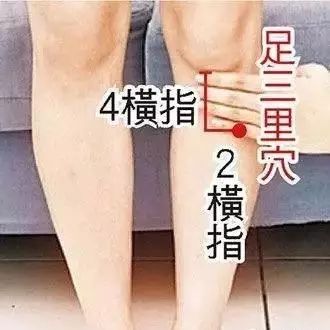
Massage for Qi Supplementation: Massage Zu San Li (ST36), Guan Yuan (CV4), abdominal massage, and back kneading.
Treatment for Qi Deficiency: Treat diseases early and thoroughly, do not delay, to prevent prolonged illness from depleting Qi.
Post-Illness Qi Supplementation: After major illnesses or childbirth, timely adjustment is necessary to prevent Qi deficiency.
Techniques for Qi Supplementation: Breathing exercises, focusing on the lower dantian, maintaining a moderate level of hunger and cold, and moderation in all things.
Supplementing Blood
What is Blood Deficiency?
Blood deficiency refers to insufficient blood volume, leading to malnourishment of the organs, meridians, and body, commonly presenting with pale or sallow complexion, pale lips, tongue, and nails, dizziness, palpitations, frequent dreams, numbness in hands and feet, and in women, scanty menstrual flow, pale color, delayed periods, or amenorrhea, with thin pulse being a common symptom.

Herbs for Blood Supplementation: Dang Gui (Angelica Sinensis), He Shou Wu (Fo-Ti), Ejiao (Donkey-hide Gelatin), Shu Di Huang (Rehmannia), Gou Qi Zi (Goji Berries), Huang Qi (Astragalus), etc.
Formulas for Blood Supplementation: Shi Quan Da Bu Gao (Ten Complete Great Supplement Paste), Gui Pi Wan (Restore the Spleen Pill), Fu Fang Ejiao Jiang (Compound Ejiao Syrup), Dang Gui Bu Xue Gao (Angelica Blood Supplement Paste), etc.
Diet for Blood Supplementation: Longan, old hen, red dates, egg yolks, pig liver, lean meat, fish, etc.
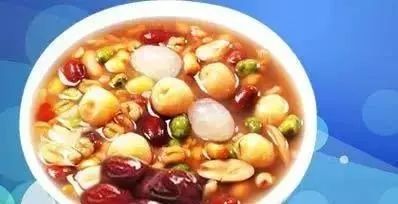
Lifestyle for Blood Supplementation: Regular lifestyle, balance between work and rest, nutritional balance, cooking with iron pots, and avoiding strong tea.
Conservation for Blood Supplementation: Avoid prolonged viewing, excessive thinking, overwork, and external bleeding.
Treatment for Blood Supplementation: Prevent and treat bleeding, kidney failure, aplastic anemia, excessive menstruation, and metrorrhagia.
Western Medicine for Blood Supplementation: Vitamin C, Vitamin B12, ferrous fumarate, etc.
Infusion for Blood Supplementation: Plasma, whole blood, and Shen Mai Zhen (Ginseng and Wheat Needle) infusion.
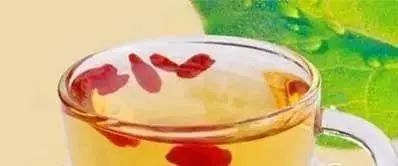
Post-Surgery Blood Supplementation: After major illnesses, surgeries, childbirth, or abortion, it is essential to nourish Qi and blood.
Medicinal Wine for Blood Supplementation: Wine infused with Huang Qi (Astragalus), Dang Gui (Angelica), Ren Shen (Ginseng), He Shou Wu (Fo-Ti), Gou Qi Zi (Goji Berries), etc.
Herbal Teas for Blood Supplementation: Dang Gui Gui Yuan Cha (Angelica and Longan Tea), Gou Qi Hei Zhi Ma Cha (Goji and Black Sesame Tea), Suan Zao Ren Cha (Sour Jujube Seed Tea), etc.
Medicinal Dishes for Blood Supplementation: Huang Qi Dang Gui Dun Lao Mu Ji (Astragalus and Angelica Stewed Old Hen), Dang Gui Yang Rou Tang (Angelica and Lamb Soup), etc.
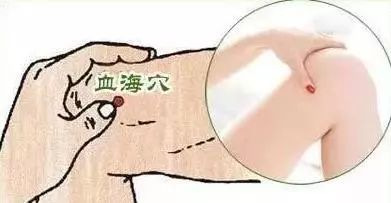
Acupuncture for Blood Supplementation: Zu San Li (ST36), San Yin Jiao (SP6), Pi Shu (BL20), Xue Hai (SP10), Ge Shu (BL17), etc.
Moxibustion for Blood Supplementation: Zu San Li (ST36), San Yin Jiao (SP6), Shen Que (CV8), Zhong Wan (CV12), Xue Hai (SP10), etc.
Supplementing Yin
What is Yin Deficiency?
Yin deficiency is a term in TCM that refers to a series of pathological changes and symptoms caused by insufficient Yin fluids, which cannot nourish and restrain Yang. Clinically, symptoms may include low-grade fever, heat in the palms and soles, afternoon tidal fever, night sweats, dry mouth and throat, irritability and insomnia, dizziness and tinnitus, red tongue with little coating, and thin rapid pulse. Treatment focuses on nourishing Yin. If Yin deficiency leads to excessive Yang fire, it is advisable to nourish Yin and clear heat. Yin deficiency can occur in various organ systems, commonly seen in lung Yin deficiency, heart Yin deficiency, stomach Yin deficiency, spleen Yin deficiency, liver Yin deficiency, and kidney Yin deficiency, with the diagnosis based on the symptoms of the affected organs.
Severe Yin deficiency can lead to a condition known as loss of Yin, with symptoms including: sticky heat sweat, shortness of breath, aversion to heat, warm hands and feet, restlessness, thirst for cold drinks, or flushed complexion, red and dry tongue, and weak rapid pulse. This condition represents a significant depletion of body fluids and requires timely nourishment of Yin and fluids.

Herbs for Yin Supplementation: Mai Dong (Ophiopogon), Sha Shen (Glehnia), Shi Hu (Dendrobium), Yu Zhu (Polygonatum), Tian Dong (Asparagus), Shan Zhu Yu (Cornus), etc.
Formulas for Yin Supplementation: Liang Wei Di Huang Wan (Six Flavor Rehmannia Pill), Mai Wei Di Huang Wan (Ophiopogon and Rehmannia Pill), Yang Yin Qing Fei Wan (Nourish Yin and Clear Lung Pill), etc.
Acupuncture for Yin Supplementation: Tai Xi (KD3), Zhao Hai (KD6), San Yin Jiao (SP6), Shen Shu (BL23), etc.
Moxibustion for Yin Supplementation: San Yin Jiao (SP6), Shen Shu (BL23), Gan Shu (BL18), etc.
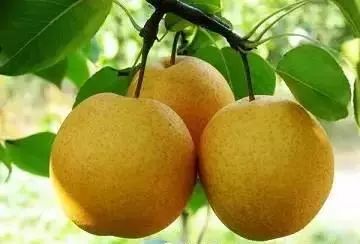
Diet for Yin Supplementation: Autumn pears, honey, vegetables and fruits, lilies, and white fungus.
Lifestyle for Yin Supplementation: Chewing and swallowing saliva, massaging the Yongquan point, keeping warm, and drinking plenty of fluids.
Limiting Loss for Yin Supplementation: Reduce seed snacking, avoid excessive sun exposure, quit smoking, and moderate sexual activity.
Increasing Humidity for Yin Supplementation: Hang damp towels or clothes indoors, place water basins indoors, and use humidifiers.
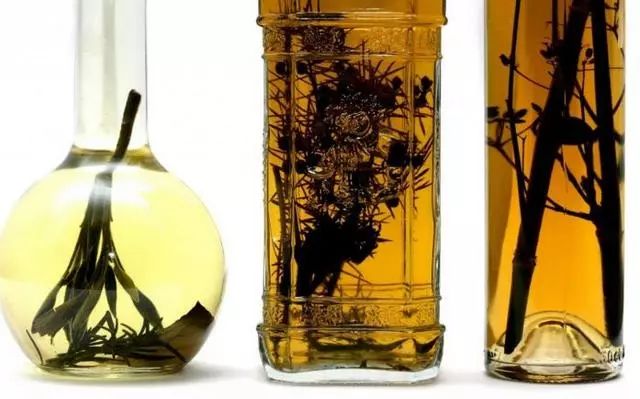
Medicinal Wine for Yin Supplementation: Wine infused with Mai Dong (Ophiopogon), Bai He (Lily), Shi Hu (Dendrobium), Shu Di Huang (Rehmannia), Shan Zhu Yu (Cornus), etc.
Herbal Teas for Yin Supplementation: Tea made with Bai He (Lily), Mai Dong (Ophiopogon), Tian Dong (Asparagus), Sha Shen (Glehnia), Yu Zhu (Polygonatum), etc.
Medicinal Dishes for Yin Supplementation: Yin Er Bai He Tang (White Fungus and Lily Soup), Gou Qi Dun Jia Yu (Goji Stewed Soft-Shelled Turtle), Hei Zhi Ma You (Black Sesame Oil), etc.
Treatment for Yin Deficiency: Diabetes, hyperthyroidism, recurrent heat, and menopausal syndrome all require Yin nourishment.
Regional Considerations for Yin Supplementation: The dryness of the Northwest can easily damage Yin, while the humidity of the Southeast can reduce moisture evaporation and protect Yin.
Autumn and Winter Yin Supplementation: The dry climate in autumn and winter leads to excessive moisture evaporation, necessitating Yin nourishment and preservation of essence.
Fluid Supplementation for Yin: In cases of acute dehydration, intravenous fluids can rapidly improve symptoms.
Emergency Yin Preservation: In TCM treatment of warm diseases, using laxatives to reduce fever can protect Yin and prevent true Yin depletion.
Supplementing Yang
What is Yang Deficiency?
Yang deficiency is a term in TCM that refers to the weakening of Yang energy in the body, leading to reduced or weakened functions, decreased metabolic activity, and low reactivity, resulting in insufficient Yang heat. Yang energy warms the body and organs; if Yang is deficient, bodily functions decline, and signs of coldness may appear. Common types include stomach Yang deficiency, spleen Yang deficiency, and kidney Yang deficiency. The main symptoms of Yang deficiency include cold intolerance, cold limbs, pale complexion, loose stools, clear and prolonged urination, and a weak, deep pulse.
Herbs for Yang Supplementation: Ren Shen (Ginseng), Fu Zi (Aconite), Rou Gui (Cinnamon), Ba Jiao (Morinda), Cong Rong (Cistanche), Lu Rong (Deer Antler), Gui Zhi (Cinnamon Twig), etc.
Formulas for Yang Supplementation: Jin Kui Shen Qi Wan (Kidney Qi Pill), Fu Zi Li Zhong Wan (Aconite and Ginseng Pill), Ai Fu Nuan Gong Wan (Warm the Palace Pill), etc.
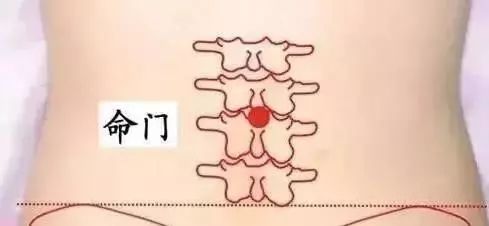
Acupuncture for Yang Supplementation: Qi Hai (CV6), Guan Yuan (CV4), Zu San Li (ST36), Bai Hui (GV20), Ming Men (GV4), etc.
Moxibustion for Yang Supplementation: Shen Que (CV8), Guan Yuan (CV4), Qi Hai (CV6), Da Zhui (GV14), Ming Men (GV4), Yong Quan (KD1), etc.
Diet for Yang Supplementation: Beef, lamb, dog meat, scallions, ginger, longan, sparrow eggs, deer meat, leeks, etc.
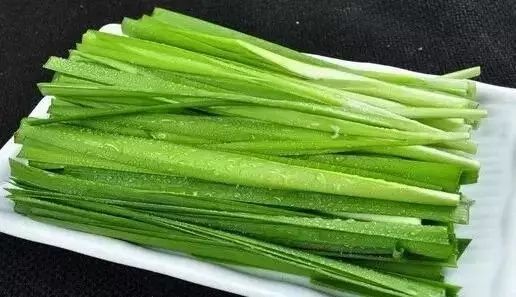
Exercise for Yang Supplementation: Qigong, Tai Chi, labor exercises, athletics, and martial arts to generate Yang.
Bathing for Yang Supplementation: Bathing with Chuan Cao Wu (Aconite), Bu Guo Zhi (Psoralea), Gui Zhi (Cinnamon), Fu Zi (Aconite), Gan Jiang (Dried Ginger), etc.
Treatment for Yang Preservation: Prevent and treat dysmenorrhea, chronic bronchitis, hypothyroidism, rheumatism, and chronic diarrhea.

Cold Prevention and Yang Preservation: Avoid excessive cold exposure, personal protection, and warmth to reduce Yang energy loss.
Medicinal Wine for Yang Supplementation: Wine infused with Ren Shen (Ginseng), Rou Cong Rong (Cistanche), Ba Jiao Tian (Morinda), Lu Rong (Deer Antler), etc.
Medicinal Dishes for Yang Supplementation: Ren Shen Dang Gui Huang Qi Dun Lao Mu Ji (Ginseng, Angelica, and Astragalus Stewed Old Hen), Dang Gui Fu Zi Yang Rou Tang (Angelica, Aconite, and Lamb Soup), etc.
Herbal Teas for Yang Supplementation: Ren Shen Cha (Ginseng Tea), Jiang Hong Cha (Ginger Black Tea), Gou Qi Cha (Goji Tea), Cong Rong Cha (Cistanche Tea), etc.
Cupping for Yang Supplementation: Cupping on Da Zhui (GV14), Shen Que (CV8), Ming Men (GV4), Fei Shu (BL13), etc.
Recommended Reading-
Sharing is Caring!
Share this great article with everyone!If you like it, give it athumbs up

